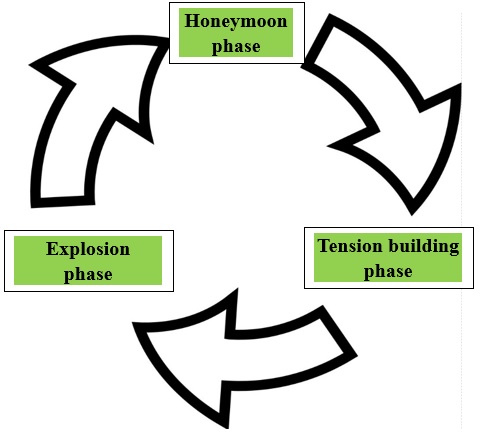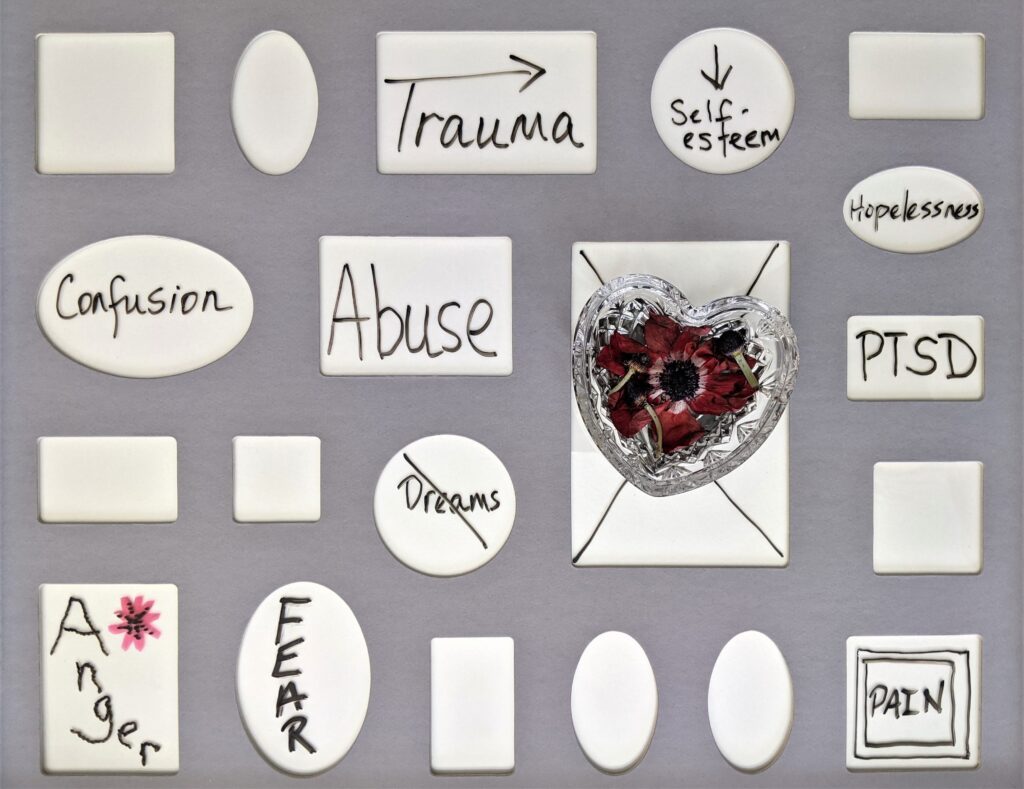
Are you in a trauma bond?
**This post contains information that may be triggering for some individuals.**
Table of Contents
A trauma bond is a strong attachment to a person who causes you harm. It is typically formed in romantic relationships where the cycle of abuse is present, although it shows in other relationships such as child and abusive parent. I will dive more into trauma bonding in a moment.
Cycle of abuse.

Tensions building phase: The abuser may yell, become moody, make threats, or may destroy property. The victim tries to calm the abuser, withdrawals, isolates, and tries to reason with the abuser. The victim may feel he/she is walking on eggshells.
Explosion phase: The abuser may physically, sexually, or emotionally abuse the victim. The victim tries to protect him/herself and children, may fight back, and may try to leave the abuser.
Honeymoon phase: The abuser says, “I’m sorry,” begs for the partner to return home, promises to never do it again, promises to get help, and declares his/her love. The victim returns home, believes the abuser’s promise, and feels hopeful that change will happen.
The relationship does not typically start out as abusive but develops over time along with the trauma bond. There are several warning signs that you can be aware of and recognize early on if the relationship is abusive.
Early warning signs of an abusive relationship:

- There is “irresistible chemistry.” You hit it off from the start, can talk for hours on end, and find yourself sharing your deepest parts of yourself instantly.
- They want to spend every moment with you, pulling you away from your friends and family. You find that over time you lose connection with others and only have your partner.
- Love bombing. They are overly loving and affectionate. All the time.
- The relationship fluctuates between highs and lows. Things are good, then bad, and repeat.
- They push against any boundaries you have.
So, what is a trauma bond?
A trauma bond is the attachment that forms from the cycle of abuse. The abuser explodes, saying hurtful things and/or being physically, verbally, or emotionally abusive followed by apologizing profusely, gift giving as an act of making up, or being overly affectionate. They say it will never happen again and they will change.
The National Domestic Violence Hotline states, “even after the abusive behaviors begin, we know leaning into these feelings of love, compassion and hope can help us cope with the violence in the short-term.”
This cycle leaves you, the abused partner, very confused as you feel hopeful in believing your partner will change. You rationalize the behavior of your partner. “He was just stressed because of work.” “She only said hurtful things because she was drinking.” You are hopeful that the explosion won’t happen again, and you cling to the affection and love your partner is showing post-explosion. This is the trauma bond. The cycle repeats, and the bond stays.

It can be extremely difficult to break free from a trauma bond. Every time you enter the honeymoon phase, you convince yourself that it truly won’t happen again because your partner will change this time. You love your partner, and you see that good in them every time you hit that honeymoon stage. So, you stay because you convince yourself that the abusive part “isn’t who he really is.”
How to break the trauma bond and leave an abusive relationship.
- Build your support network. Inform your trusted family and friends of the situation and let them help you.
- Contact local domestic violence programs for support. Use a family member or friend’s phone if you contact any domestic violence programs prior to leaving the relationship for your safety.
- Create an escape plan.
- Be prepared to leave by having the car filled with gas. Have a bag of clothes, important documents, and spare cash in the car.
- If you have children, inform them about the plan and practice getting out of the house safely with them.
- Have a safe place set up to go to when you leave. Whether that is a family member’s house, or a domestic violence safe house.
- Turn off any location settings on your cell phone before arriving at your safe house.
Please do not hesitate to call 911 or reach out to any professionals in your area if you are in an abusive relationship and need help. Please contact me if you need help locating assistance in your area.
